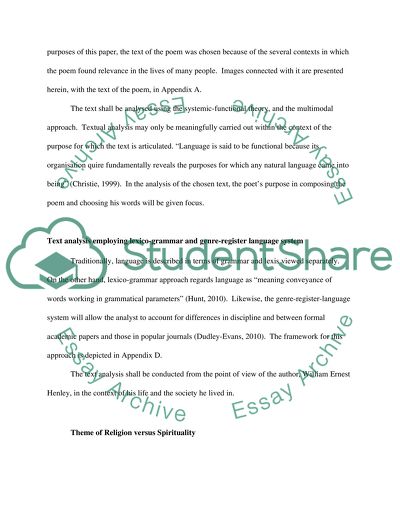Cite this document
(Invictus by William Ernest Henley Literature review, n.d.)
Invictus by William Ernest Henley Literature review. Retrieved from https://studentshare.org/literature/1565168-text-analysis-and-report-based-on-a-systemic-functional-linguistic-and
Invictus by William Ernest Henley Literature review. Retrieved from https://studentshare.org/literature/1565168-text-analysis-and-report-based-on-a-systemic-functional-linguistic-and
(Invictus by William Ernest Henley Literature Review)
Invictus by William Ernest Henley Literature Review. https://studentshare.org/literature/1565168-text-analysis-and-report-based-on-a-systemic-functional-linguistic-and.
Invictus by William Ernest Henley Literature Review. https://studentshare.org/literature/1565168-text-analysis-and-report-based-on-a-systemic-functional-linguistic-and.
“Invictus by William Ernest Henley Literature Review”, n.d. https://studentshare.org/literature/1565168-text-analysis-and-report-based-on-a-systemic-functional-linguistic-and.


